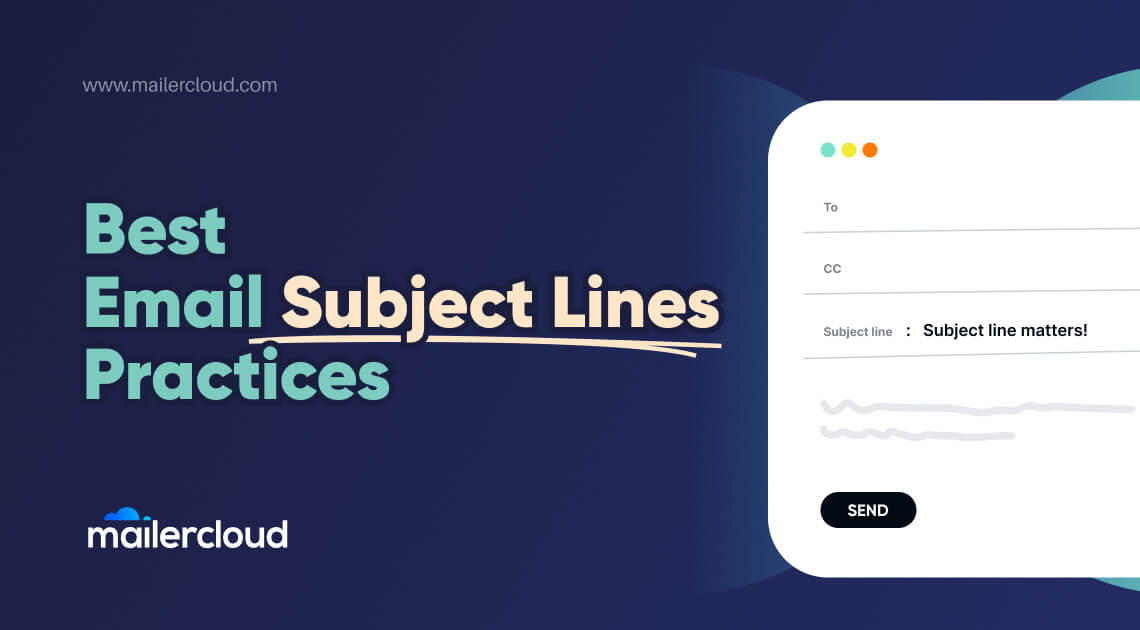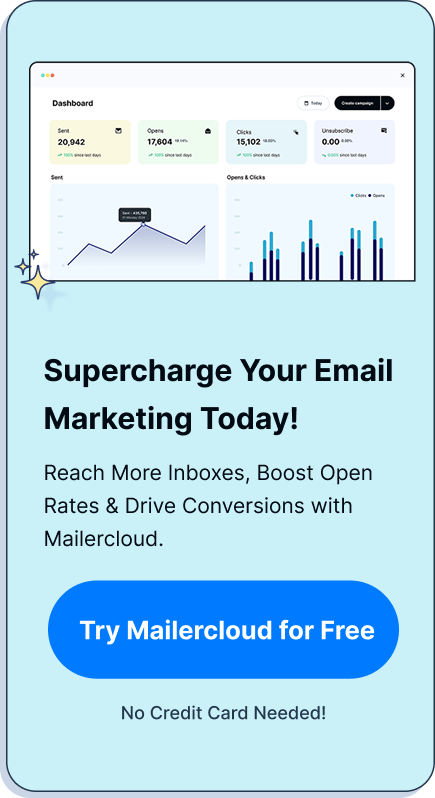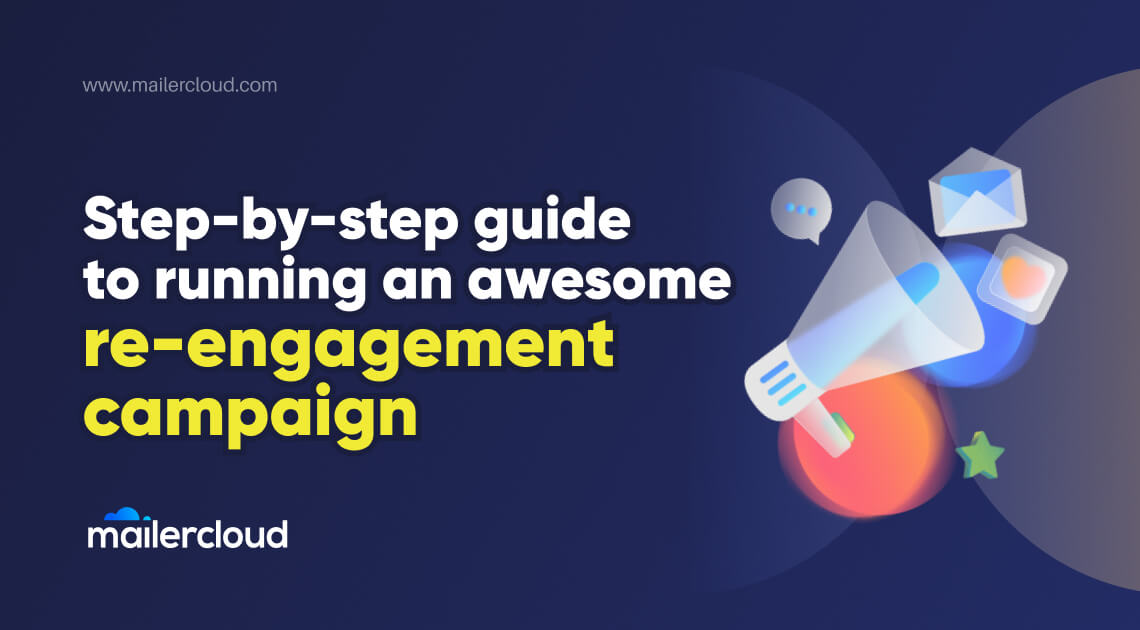Discover the importance and best practices of creating compelling email subject lines. This article will guide you through the critical aspects of crafting catchy email subject lines that can significantly boost your open rate and enhance your email marketing efforts.
Table of Contents
Understanding the Importance of an Email Subject Line
The email subject line is arguably the most important part of your email. Just like a headline for a news article or blog post, it’s the first thing your recipients see when they receive your email. The quality of your email list determines the success of your email marketing campaign, but the subject line plays a crucial role in the email open rate.
The importance of an email subject line cannot be overstated. It is often the first interaction someone has with your email, and it can significantly impact whether or not your message gets read. Here are few reasons why an email subject line is so essential:

- First Impressions: It provides the first glimpse of your message. An interesting and engaging subject line can capture the recipient’s attention and increase the email open rate.
- Relevance: A well-crafted subject line can immediately convey the relevance of your email to the recipient. This can be particularly important in business communications, where individuals often receive a large number of emails each day.
- Organization: Subject lines can help recipients to organize their inbox effectively. A clear and descriptive subject line can make it easier for individuals to sort and prioritize their emails.
- Email Deliverability: The subject line plays a crucial role in email deliverability. Spam filters often look at the subject line as part of their filtering process. Thus, a poorly crafted subject line can result in your email being sent to the spam folder.
- Call to Action: A compelling subject line can act as a call to action, prompting the recipient to open the email and engage with its content.
Best Practices for Writing Great Email Subject Lines
To write great subject lines, you need to keep your subject lines concise and clear. Personalized email subject lines often perform better because they grab the attention of the reader. It’s also important to test your subject lines to see which ones work best for your audience.
- Keep it Short: Email subject lines will get cut off if they’re too long, especially on mobile devices. Try to keep them under 50 characters.
- Use a Familiar Sender Name: If the recipient doesn’t recognize who the email is coming from, they might not open it.
- Personalize it: Using the recipient’s name or other personal information can make the email feel more relevant and engaging.
- Use Actionable Language: Verbs can inspire people to click.
- Create a Sense of Urgency: If the recipient feels like they could miss out, they might be more likely to open the email.
- Highlight the Value: What will the recipient gain from opening your email?
- Ask a Question: Questions can spark curiosity and encourage the recipient to open the email to find the answer.
- Avoid Spam Triggers: Certain words and techniques can cause your email to be marked as spam, such as using all caps, excessive punctuation, or phrases like “Buy now” or “Free”.
- Test Different Tactics: What works for one audience might not work for another, so it’s important to do A/B testing to find out what your recipients respond best to.
- Proofread: Spelling and grammar mistakes can make your email look unprofessional and could decrease your open rates.
Examples of Best Email Subject Lines

Here are some examples of great subject lines:
- “Your order has been shipped!”
- “Feeling lucky? You could win big!”
- “Your prescription benefits are expiring.”
- “You’re Missing Out on Points!”
- “Don’t miss out on…”
- “Last Chance to Register!”
Role of Welcome Email Subject Lines in Email Marketing
Welcome emails have some of the highest open rates. A great welcome email subject line can set the tone for your relationship with new email subscribers or customers.
A good subject line is essential in making a strong first impression, increasing open rates and conversions, building brand recognition, and avoiding spam filters.
Writing Effective Holiday Email Subject Lines
Holidays are a great opportunity to send out promotional emails and drive sales. However, it’s important to keep your subject lines festive, creative, and relevant to stand out from the crowd.
Words and phrases like “Holiday Deals”, “Christmas Gifts”, or “New Year Sale” can catch the eye of those looking for holiday-specific content or deals. A single, relevant emoji can add a fun, festive touch to your subject line, but don’t overdo it. Too many emojis can look unprofessional and may lead to your email being marked as spam.
Crafting Cold Email Subject Lines that Work
Cold emails are unsolicited emails sent to potential customers who have had no prior contact with you. The success of these emails largely depends on their subject lines. Effective email subject lines for cold emails are personalized, create curiosity, and offer value to the recipient.
The Connection Between Open Rate and Good Subject Lines
A subject line is one that prompts your recipients to open your email, which can significantly boost your open rate. Therefore, spending time on perfecting your subject line is crucial for the success of your email marketing campaign.
Open rates refer to the percentage of recipients who open an email from your email campaigns. It’s a critical metric to understand how your audience is responding to your emails. Meanwhile, the subject line is the first thing your audience sees before they decide to open your email or not. That’s why it plays a vital role in influencing open rates.
Here are some ways in which subject lines can enhance open rates:
- Clarity: Clear, concise subject lines tend to perform better because they tell the reader exactly what they can expect when they read the email. If your audience understands what they’ll get from the email, they’re more likely to do so.
- Relevance: Subject lines that are relevant to the recipient’s interests or needs are more likely to be opened. This could involve personalization, such as including the recipient’s name or referencing a recently purchased product.
- Urgency and scarcity: By indicating that there’s limited time or availability, you can encourage recipients to open the email immediately.
- Curiosity: Subject lines that pique the reader’s curiosity can also improve open rates. This could include asking a question or making a surprising statement.
- Value: If your subject line communicates clear value to the reader, such as an exclusive offer or useful tips, it can increase the likelihood of your email being opened.
Writing a Reminder Email with a Catchy Subject Line
Sending reminder emails is an effective way to keep your audience engaged. However, you need to ensure that your subject lines are catchy and create a sense of urgency.
Reminder emails serve as an effective tool in time management and ensuring tasks are accomplished within the stipulated timeline. They act as a prompt, gently nudging the recipient’s memory about a pending task, due date, or an upcoming event.
For businesses, gentle reminder email can be used to remind customers about abandoned shopping carts, upcoming sales, renewal of subscriptions, or appointments. They can be automated to reduce manual work and can be customized to add a personal touch. Crafting a reminder email requires a balance between politeness and urgency, ensuring it’s not too intrusive while still conveying its importance. Including clear instructions, specific deadlines, and a concise subject line can increase the effectiveness of reminder emails.
Key Points:
Remember these key points:
- Keep your subject lines clear and concise.
- Personalize your subject lines when possible.
- Explore different subject lines to see what works best.
- Use a sense of urgency or curiosity in your subject lines.
- Always make sure your subject line is relevant to the email content.
Creating compelling email subject lines is an art, and it’s a skill that can significantly impact the success of your email marketing campaign. So, start crafting those catchy email subject lines and boost your open rates!
Summing Up:
Subject lines are vital for improving open rates because they influence whether or not recipients choose to engage with your emails. By understanding what makes a subject line effective, you can craft ones that increase your open rates and ultimately lead to more successful email campaigns.
Remember, the subject line is just as important as the body of your email, if not more. It’s often the first impression recipients have of the content inside your email. Thus, it’s best to use different email subject lines that boost curiosity and compel readers to open. Whether it’s a question in your subject line or an introduction make sure your email stands out.
Every subject line should be tailored to the content of the email body. For instance, event email subject lines should convey urgency, while follow-up email subject lines might have a different tone. One of the best ways to ensure relevance is to create different subject lines for every type of communication.
In conclusion, mastering the art of writing email subject lines is a crucial skill in both marketing email and follow-up email strategies. Whether you’re sending an email newsletter, a reminder email, or a thank you email, the line of text at the top can be the deciding factor in whether your recipients choose to engage.
Lina is a content writer with a passion for reading, writing, and cooking. She aims to explore the world of words and flavors. With a deep love for literature and a knack for creating mouthwatering recipes, she strive to engage and inspire others through her work.

































